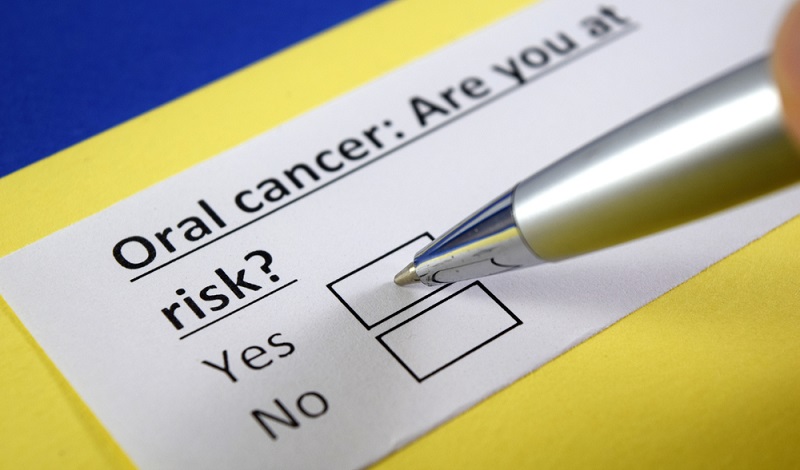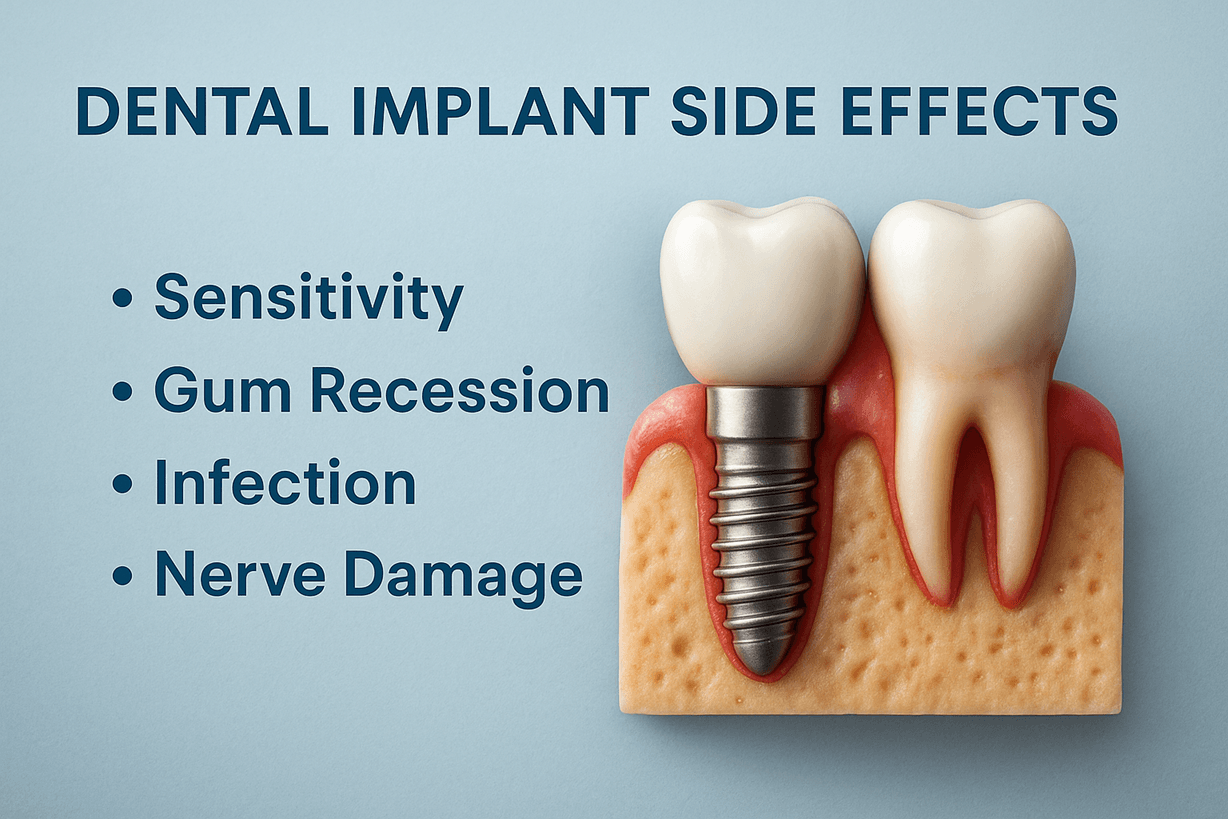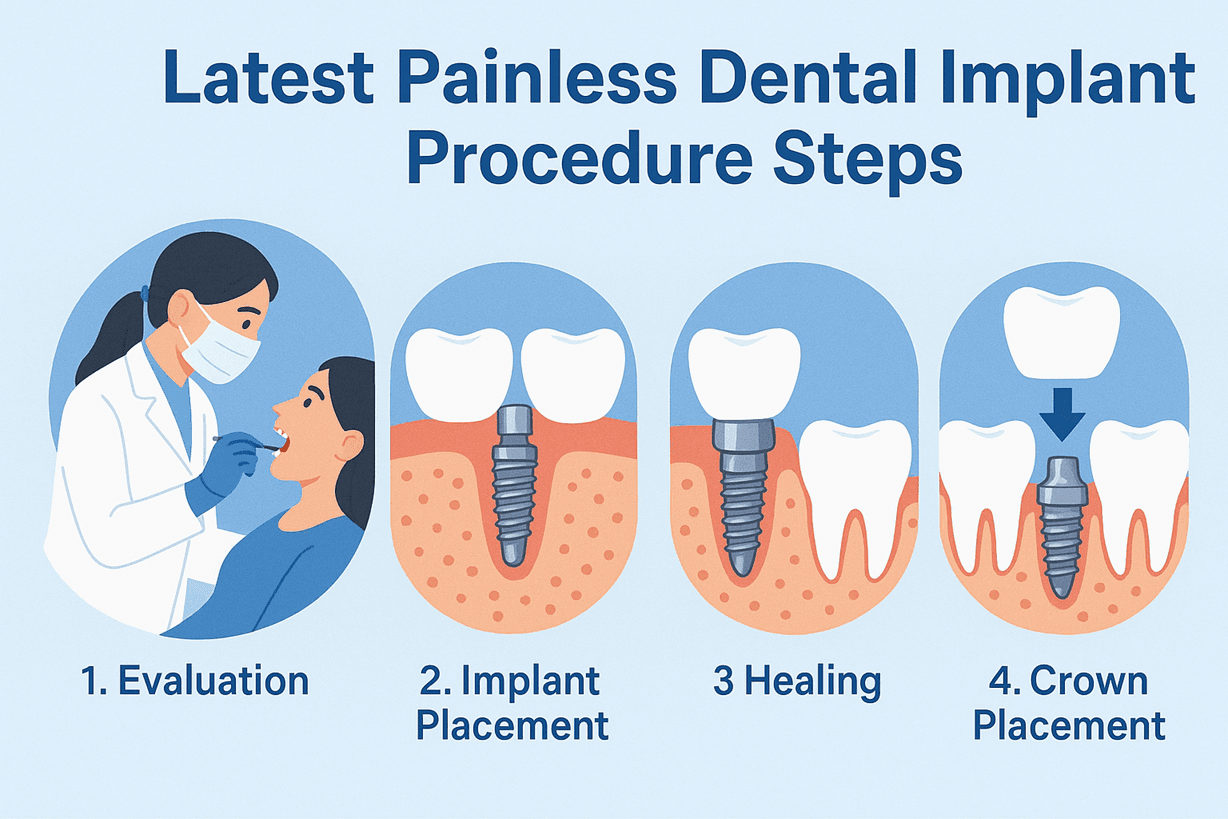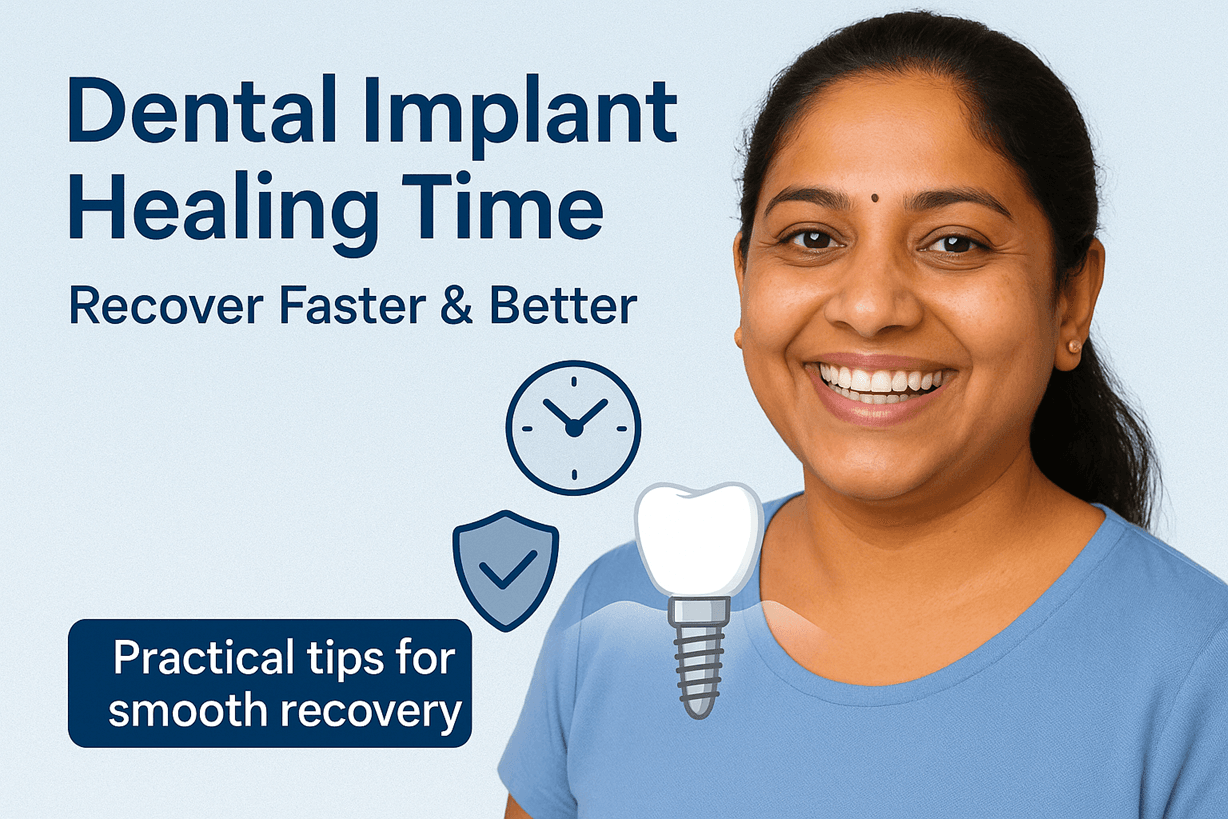Contents
- What Is Oral Cancer?
- Oral Cancer Causes & Risk Factors
- 1. Tobacco Use:
- 2. Alcohol Use:
- 3. Betel Nut Use:
- 4. HPV Infection:
- 5. Poor Nutrition:
- 6. Age:
- 7. UV Exposure:
- 8. Weakened Immune System:
- 9. Exposure to Certain Chemicals:
- 10. Family History:
- 11. Excessive Sun Exposure:
- Risk of Oral Cancer After Quitting Smoking
- Risk of Oral Cancer After Quitting Chewing Tobacco
- Oral Dysplasia And Risk Of Progression To Cancer
- Risk Factors Of Oral Cancer In India And How Many People Suffer From Oral Cancer?
- What Are The Ways To Reduce The Risk Of Oral Cancer?
- Quit Smoking:
- Limit Alcohol Consumption:
- Protect your lips from the sun:
- Eat a healthy diet:
- See your dentist regularly:
- Avoid smokeless tobacco:
- On the Contrary
Oral cancer may not be as well-known as other types of cancer, but it's still a serious disease that can lead to life-threatening consequences.
Unfortunately, many people are unaware of the risk factors that increase their chances of developing oral cancer.

In this blog post, we'll explore some of the key risk factors associated with this debilitating condition and provide practical tips on reducing your risks and protecting yourself from oral cancer. So, buckle up for an informative journey into oral cancer risk factors!
What Is Oral Cancer?
Oral cancer is a serious condition that develops in the tissues of the mouth or throat. It can affect various parts, including the lips, gums, tongue, and the floor of the mouth.
Typically, oral cancer is diagnosed in individuals over 40, and the risk increases with age. Common risk factors include smoking, heavy alcohol consumption, and betel nut chewing.
If you suspect signs of oral cancer, it’s crucial to consult a doctor or dentist immediately. Early diagnosis and treatment significantly improve the chances of successful recovery.
Symptoms of Oral Cancer:
Persistent pain in the mouth or neck
Lumps or swelling in the neck
Sores that don’t heal
Difficulty swallowing or chewing
Numbness in the jaw or tongue
Oral Cancer Causes & Risk Factors
It is estimated that about 43,000 Americans will be diagnosed with oral or oropharyngeal cancer this year.
Though the incidence of oral cancer has been declining over the past few decades due in part to less use of tobacco products, it is still relatively common.
Several risk factors can increase the chance of developing oral cancer.
1. Tobacco Use:
Cigarette smoking is the most important risk factor for oral cancer. Pipe smokers and cigar smokers also have an increased risk, though not as great as cigarette smokers.
Smoky tobacco products such as chewing tobacco and snuff also increase the risk of oral cancer.
2. Alcohol Use:
Heavy drinkers are at increased risk for developing oral cancer, especially if they also smoke cigarettes.
3. Betel Nut Use:
A betel nut is a seed that is chewed with other ingredients wrapped in a leaf from the betel pepper plant.
This practice is common in South Asia and some Pacific Island cultures. Chewing betel nuts can increase the risk of developing oral cancer.
4. HPV Infection:
HPV is a virus that has been linked with several types of cancers, including cervical and anal cancer.
Some strains of HPV are also associated with an increased risk of oropharyngeal cancer, which includes cancers of the back of the throat, the base of the tongue, and the tonsils.
5. Poor Nutrition:
A diet low in vitamins and minerals may increase the risk of developing oral cancer. Eating a diet high in fruits and vegetables has been linked with a decreased risk of oral cancer.
6. Age:
The risk of developing oral cancer increases with age. Most oral cancers develop in people over the age of 40, though the incidence is rising among younger adults, likely due to HPV infection.
7. UV Exposure:
Exposure to UV radiation from the sun or tanning beds can increase the risk of mouth and throat cancers.
8. Weakened Immune System:
People with weakened immune systems due to HIV, AIDS, or other conditions may have an increased risk of oral cancer.
9. Exposure to Certain Chemicals:
Working with or being exposed to asbestos and other toxic fumes increases the risk of oral cancer.
10. Family History:
Having one or more family members with oral cancer may increase the risk of developing it.
11. Excessive Sun Exposure:
Prolonged exposure to UV radiation from the sun can damage cells and increase the risk of skin cancer, including lip and mouth cancer.
Wearing sunscreen and protective clothing can help minimize this risk.
Risk of Oral Cancer After Quitting Smoking
Smoking is a major contributor to oral cancer, with smokers being six times more likely to develop the disease than nonsmokers, according to the Oral Cancer Foundation. However, the good news is that the risk of oral cancer significantly decreases after quitting smoking.
A study published in Cancer Epidemiology, Biomarkers & Prevention found that individuals who quit smoking reduce their risk of developing oral cancer by 50% compared to those who continue smoking. This risk reduction occurs within just five years of quitting.
If you're a smoker, quitting is one of the most effective ways to lower your risk of oral cancer and improve your overall health.
Risk of Oral Cancer After Quitting Chewing Tobacco
The risk of oral cancer after quitting chewing tobacco is very low. Studies have shown that the risk of oral cancer for ex-smokers is no different than the risk for people who have never smoked.
However, it is still important to see your dentist regularly and to report any changes in your mouth, such as new or worsening symptoms, to your dentist right away.
It is important to also remember that quitting chewing tobacco does not guarantee a lower risk of developing oral cancer. While the risk may be lower, people who have never chewed tobacco are still at risk.
Oral hygiene and diet can play a role in preventing oral cancer.
- Limiting alcohol consumption,
- Avoiding smoking
- Exposure to Ultraviolet (UV) rays,
- Eating a balanced diet that includes fruits and vegetables,
- Maintaining good dental hygiene is an important factor in reducing the chances of developing oral cancer or its recurrence.
Oral Dysplasia And Risk Of Progression To Cancer
Oral dysplasia is a precancerous condition that refers to the abnormal growth of cells in the mouth.
While most cases of oral dysplasia do not progress to cancer, there is a small risk that it could develop into oral cancer if left untreated.
Several factors can increase the risk of Oral Dysplasia And The Risk Of Progression To Cancer.
But of them all, there are 3 major reasons why people suffer from Oral Cancer such as:
1. Tobacco Use:
Tobacco use, whether it’s smoking or chewing, is the leading cause of oral cancer. People who use tobacco products have a much higher risk of developing oral cancer than those who don’t.
2. Alcohol Use:
Heavy alcohol use is also a major risk factor for oral cancer. The more alcohol you drink, the greater your risk becomes.
3. HPV Infection:
Certain types of HPV (human papillomavirus) can increase the risk of developing oral cancer.
HPV is transmitted through sexual contact and is more common in people who have multiple sexual partners.
If you have any of these risk factors, it’s important to be aware of the signs and symptoms of oral cancer so you can catch it early.
Some common signs include sores or lumps in the mouth, pain or difficulty swallowing, changes in voice or hoarseness, and unexplained bleeding in the mouth.
If you notice any of these symptoms, make an appointment with your dentist or doctor immediately for an evaluation.
Risk Factors Of Oral Cancer In India And How Many People Suffer From Oral Cancer?
- It is estimated that more than 80% of oral cancer cases in India are linked to the use of tobacco products.
- It is but in fact, the Risk Factors Of Oral Cancer In India are quite high and a few reasons why the rate is so high is because of the habit of chewing products like tobacco, zarda, khaini, paan masala, beedi and so many more.
- Another reason why the risk of oral cancer is high is because of Smoking. Be it smoking cigarettes, cigars, and beedis (thin, hand-rolled cigars popular in South Asia) is a major risk of oral cancer.
- According to the Indian Council of Medical Research, there are more than 3 million smokers in India.
- Other risk factors for oral cancer include betel quid chewing, alcohol consumption, and HPV infection. Betel quid is a combination of areca nut, slaked lime, and tobacco wrapped in a betel leaf.
- It is commonly used in South Asia as a stimulant and social lubricant. Chewing betel quid has been linked to an increased risk of developing oral cancer. Alcohol consumption is also a risk factor for oral cancer.
- The National Institute on Alcohol Abuse and Alcoholism estimate that nearly 9% of men and 4% of women in India suffer from alcohol use disorder.
- HPV infection is another risk factor for oral cancer. HPV is a group of viruses that can cause infections in the mouth and throat.
- In some people, HPV infection can lead to the development of cancerous tumours. It is estimated that more than 50% of oral cancers in India are linked to HPV infection.
- Despite these risk factors, the vast majority of people who use tobacco products, chew betel quids, drink alcohol, or are infected with HPV will never develop oral cancer.
- However, it is estimated that over 400,000 Indians suffer from oral cancer each year.
What Are The Ways To Reduce The Risk Of Oral Cancer?
There are several ways that you can reduce your risk of oral cancer. These include:
Quit Smoking:
Smoking is the leading cause of oral cancer, so quitting is the best way to reduce your risk.
Limit Alcohol Consumption:
Alcohol use is a major risk factor for oral cancer, so limiting your intake can help decrease your risk.
Protect your lips from the sun:
Ultraviolet radiation from the sun is a known risk factor for lip cancer, so using lip balm with SPF and wearing a hat can help reduce your risk.
Eat a healthy diet:
A diet rich in fruits and vegetables has been shown to decrease the risk of many types of cancer, including oral cancer.
See your dentist regularly:
Regular dental checkups can help detect any early signs of oral cancer and allow for timely treatment.
Avoid smokeless tobacco:
Using smokeless tobacco has been linked to an increased risk of oral cancer.
On the Contrary
In conclusion, oral cancer can affect anyone and is often caused by lifestyle factors.
Several risk factors contribute to an increased risk of developing the disease, such as smoking, alcohol usage, age, gender, genetics, and environment.
While it may be impossible to avoid all these risk factors at once, certain steps can be taken to reduce your chances of developing oral cancer.
Knowing about these risk factors is paramount as it could very well save lives by allowing individuals to take necessary precautions against them.



